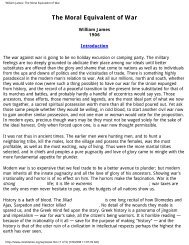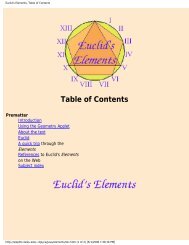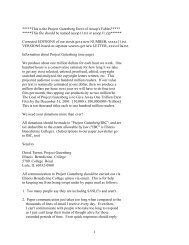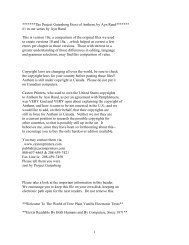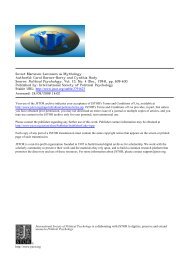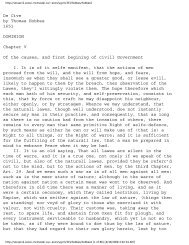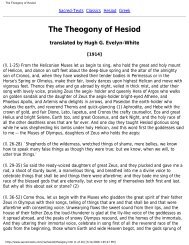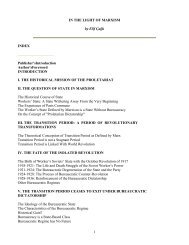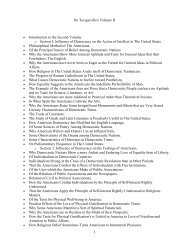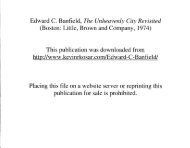Project Gutenberg Etext of The Large Catechism, by Martin Luther
Project Gutenberg Etext of The Large Catechism, by Martin Luther
Project Gutenberg Etext of The Large Catechism, by Martin Luther
Create successful ePaper yourself
Turn your PDF publications into a flip-book with our unique Google optimized e-Paper software.
But before we explain the Lord's Prayer part <strong>by</strong> part, it is most<br />
necessary first to exhort and incite people to prayer, as Christ and<br />
the apostles also have done. And the first matter is to know that it is<br />
our duty to pray because <strong>of</strong> God's commandment. For thus we heard in the<br />
Second Commandment: Thou shalt not take the name <strong>of</strong> the lord, thy God,<br />
in vain, that we are there required to praise that holy name, and call<br />
upon it in every need, or to pray. For to call upon the name <strong>of</strong> God is<br />
nothing else than to pray. Prayer is therefore as strictly and<br />
earnestly commanded as all other commandments: to have no other God,<br />
not to kill, not to steal, etc. Let no one think that it is all the<br />
same whether he pray or not, as vulgar people do, who grope in such<br />
delusion and ask Why should I pray Who knows whether God heeds or will<br />
hear my prayer If I do not pray, some one else will. And thus they<br />
fall into the habit <strong>of</strong> never praying, and frame a pretext, as though we<br />
taught that there is no duty or need <strong>of</strong> prayer, because we reject false<br />
and hypocritical prayers.<br />
But this is true indeed that such prayers as have been <strong>of</strong>fered<br />
hitherto when men were babbling and bawling in the churches were no<br />
prayers. For such external matters, when they are properly observed,<br />
may be a good exercise for young children, scholars, and simple<br />
persons, and may be called singing or reading, but not really praying.<br />
But praying, as the Second Commandment teaches, is to call upon God in<br />
every need. This He requires <strong>of</strong> us, and has not left it to our choice.<br />
But it is our duty and obligation to pray if we would be Christians, as<br />
much as it is our duty and obligation to obey our parents and the<br />
government; for <strong>by</strong> calling upon it and praying the name <strong>of</strong> God is<br />
honored and pr<strong>of</strong>itably employed. This you must note above all things,<br />
that there<strong>by</strong> you may silence and repel such thoughts as would keep and<br />
deter us from prayer. For just as it would be idle for a son to say to<br />
his father, "Of what advantage is my obedience I will go and do what<br />
I can; it is all the same"; but there stands the commandment, Thou<br />
shalt and must do it, so also here it is not left to my will to do it<br />
or leave it undone, but prayer shall and must be <strong>of</strong>fered at the risk <strong>of</strong><br />
God's wrath and displeasure.<br />
This is therefore to be understood and noted before everything else, in<br />
order that there<strong>by</strong> we may silence and repel the thoughts which would<br />
keep and deter us from praying, as though it were not <strong>of</strong> much<br />
consequence if we do not pray, or as though it were commanded those who<br />
are holier and in better favor with God than we; as, indeed, the human<br />
heart is <strong>by</strong> nature so despondent that it always flees from God and<br />
imagines that He does not wish or desire our prayer, because we are<br />
sinners and have merited nothing but wrath. Against such thoughts (I<br />
say) we should regard this commandment and turn to God, that we may not<br />
<strong>by</strong> such disobedience excite His anger still more. For <strong>by</strong> this<br />
72



